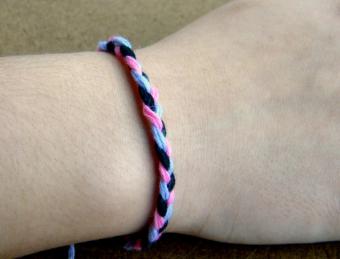
Crafting is a great way to encourage creativity, but people with disabilities often find it difficult to complete the projects in traditional crafting kits. Judith Zausner hopes to encourage people with fine motor skill difficulties and/or concentration problems to pursue their love of crafting by offering attractive and easy-to-assemble items via the Caring Crafts website.
Providing Crafting Opportunities for People with Disabilities
Although she has always been interested in crafting, Zausner didn't think of combining this passion with her academic background in occupational therapy until speaking with a friend suffering from Multiple Sclerosis. After her friend mentioned the difficulty she was having finding projects to create with the pegboard from her therapy sessions, Zausner realized there was a great need for crafting resources suitable for people with disabilities.
Despite being a relatively new business, Caring Crafts continues to grow and expand. In February 2008, Caring Crafts was awarded a grant from the National Society for the Arts in Healthcare in recognition of the company's "commitment to integrating the arts and healing."
While it's true that Caring Crafts was originally created as a resource for people with disabilities, the products the company sells are suitable for a wide variety of crafting audiences. "If you see a dining room chair next to a wheelchair, you immediately know that the wheelchair is for someone handicapped," Zausner said. "My kits do not appear tailored for a special audience; they are attractive and terrific for everyone."
Ideas for Caring Crafts
Recently, Judith Zausner took time out of her busy schedule to answer a few questions for the readers of LoveToKnow Crafts.
LoveToKnow (LTK): How do you determine what products are appropriate to sell on the Caring Crafts Web site?
Judith Zausner (JZ): Products are in multiple categories: kits, supplies, tools and devices. Although they are different items, they all must be fairly simple to use. Here are a few examples:
- Kits must not only be simple and without small parts but attractive as a finished project.
- Supplies are evaluated for their ease to manipulate. For instance, I use a specific French paper for decoupage because in addition to the excellent pattern designs, this paper is exceptionally thin yet strong so it is easy to work with especially in a 3 dimensional project.
- Tools must be easy to hold and manage and be purposeful. Devices must have a helpful component. I try to look for both tools and devices that would be particularly useful to someone who has disabilities.
How Crafting Can Help the Disabled
LTK: What are some of the ways that crafting can benefit people with disabilities?
JZ: Many people with disabilities do not realize their capability to be creative because they are focused on daily concerns. With any type of crafting, you use your hands and your mind so you get to focus more on the project and less on the ailment. Also, crafting is very flexible with boundless ways of making things so there is something out there for everyone. Very important is that it also reaps the following benefits:
- Increased cognitive functioning
- Increased self expression and decision making skills
- Increased or maintenance of fine motor skills
- Improved activities of daily living
- Enhanced hand-eye coordination
- Increased self esteem and emotional well-being
- Increased opportunity for empowerment and self expression
- Increased socialization
Finally, it is important to realize that being creative builds a positive attitude which contributes to healing.
Choosing Craft Supplies
LTK: What challenges do the disabled face when working with traditional crafting kits?
JZ: Traditional crafting kits usually have small parts and complex instructions. Both can be frustrating to a disabled person.
LTK: What advice can you offer to someone who is interested in purchasing craft supplies for a friend or family member with a disability?
JZ: When a friend purchases craft supplies for a disabled person as a gift, it is not so different from buying any type of gift because you must be sensitive to that person's world - his/her likes and dislikes but it must also include a sense of the disability limits. A woman who used to enjoy needlework but struggles now may benefit from a needlework frame that holds the fabric in place for easier stitching.
You may want to discuss the purchase directly with the friend or family member and ask questions about what would work for her/him. If you are really unsure, it is helpful to ask advice from that person's health professional or send an email to me.
Additional Information
Order crafting kits online from the Caring Crafts.







